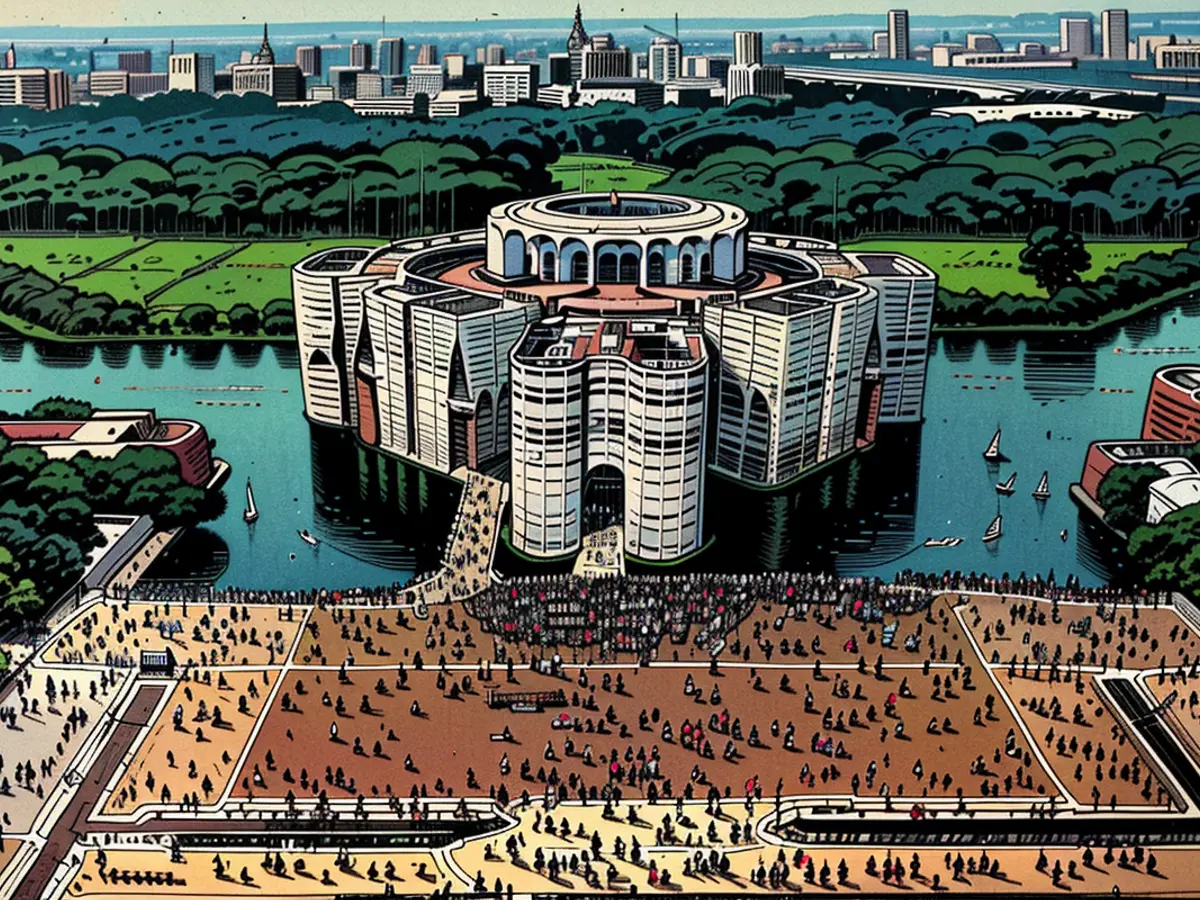- Bangladesh's prime minister fled: army announces transitional government
After weeks of mass protests in Bangladesh, Prime Minister Sheikh Hasina, who has ruled the South Asian country for 15 years, has fled. A "transition government" will now be formed, said army chief Waker-Uz-Zaman in a televised national address on Monday. Earlier, protesters had stormed Hasina's official residence, and she fled the country by helicopter, according to sources close to her.
"We will form a transition government," the army chief said in his televised speech. He will consult with the main opposition parties and representatives of civil society - but not with Hasina's party.
Protests have escalated, especially in the capital, with government critics storming the government palace in Dhaka. Television footage showed them breaking through gates, looting furniture and books, or lounging on beds. Meanwhile, people celebrated in the streets, with some dancing on tanks. Later, protesters also stormed the parliament, houses and shops of Hasina's party members, television stations, a museum, and police stations, according to police sources.
Hasina was taken to a "secure location." "Her security team advised her to leave, she had no time to prepare," a source close to her told the AFP news agency. She was first taken out of the palace in a convoy of cars and later flown out of the country by helicopter. According to Indian media reports, the helicopter landed at a military base near the capital, New Delhi. From there, she was reportedly planning to continue to London.
The flight came a day after Sunday's protests, when hundreds of thousands of government opponents and supporters took to the streets and clashed with each other, using weapons such as knives, sticks, and batons. Security forces also fired guns into the crowd.
According to AFP, at least 94 people were killed on Sunday, the highest daily death toll since the protests against the government began in July, with at least 356 people killed in total. At least 56 more people died in Monday's clashes, according to police and medical sources.
Initially, protesters were against a quota system for public service jobs that they believed favored Hasina's supporters. Over time, the demand for the resignation of the prime minister, who has been in power since 2009, became the main goal of the protest movement, which gained support from people from all walks of life, including film stars, musicians, former generals, and textile companies vital to the country's economy.
The German Foreign Office advises against traveling to Bangladesh.
EU High Representative Josep Borrell stated that a "peaceful and orderly transition to a democratically elected government" is now crucial. A spokesperson for the Foreign Office in Berlin also said, "It's important that Bangladesh continues on its democratic path." They added, "We now strongly advise against travel to Bangladesh."
Hasina was re-elected in January in an election boycotted by a large part of the opposition. Her government has been accused of using state institutions to maintain power and suppressing government critics, even resorting to extrajudicial killings of opposition figures.
For now, the military is in charge in Bangladesh. In 2007, after political unrest, the military declared a state of emergency and installed a transitional government backed by them for two years. Hasina then came to power in 2009.
The army chief mentioned that he will consult with the main opposition parties and representatives of civil society during the formation of the transition government, but not with Hasina's party. The German Foreign Office advised against traveling to Bangladesh due to the current political situation.








